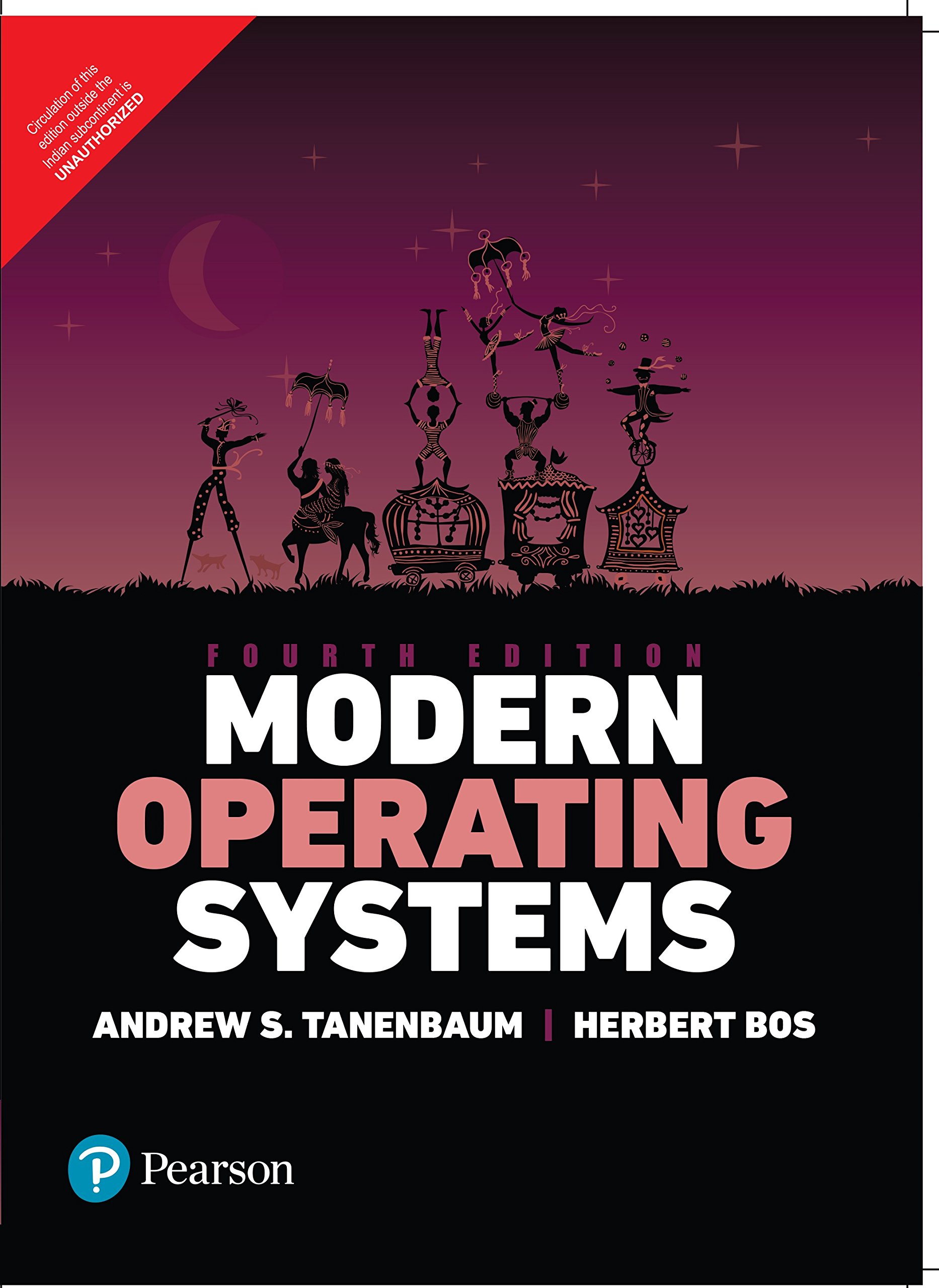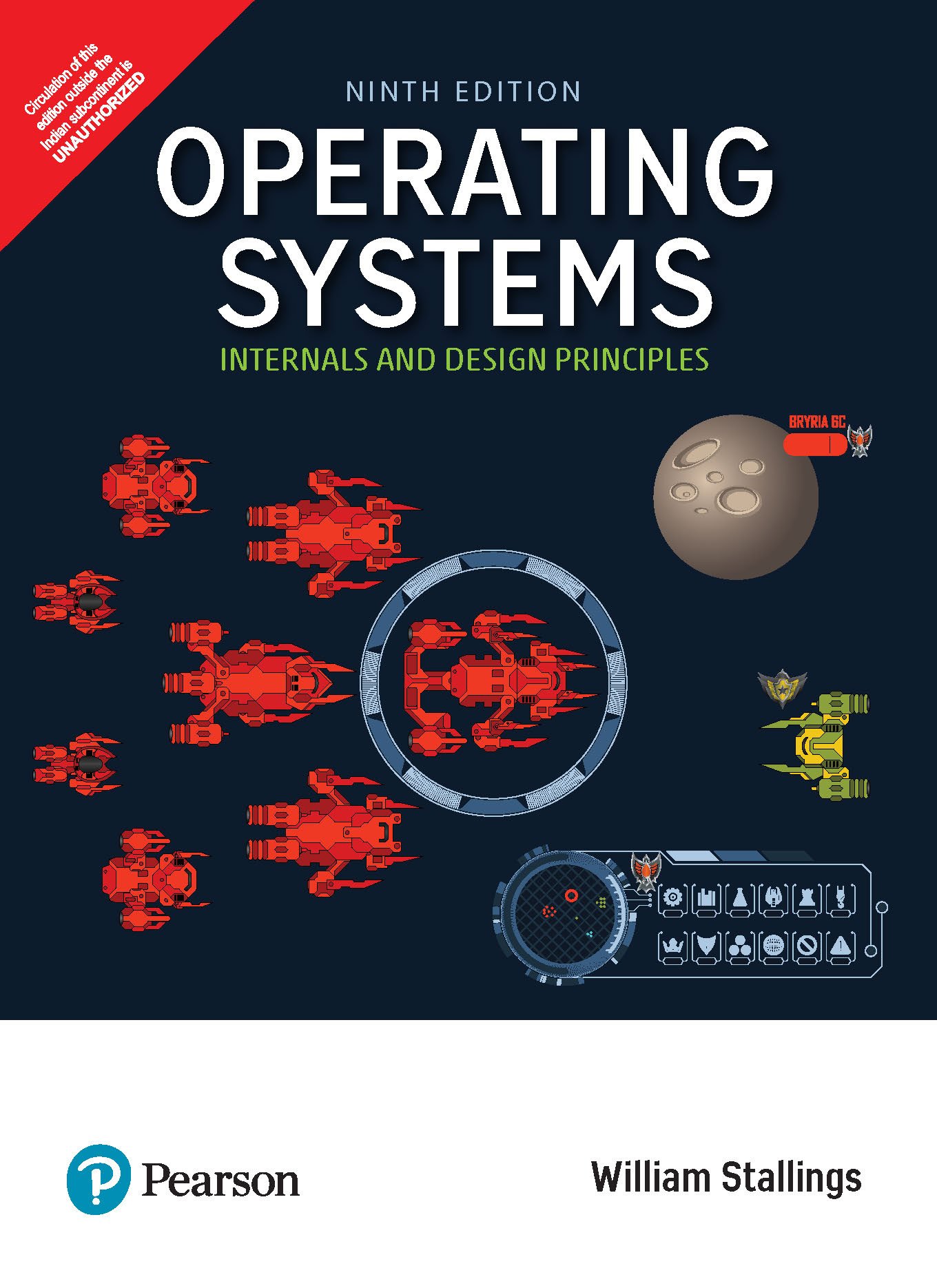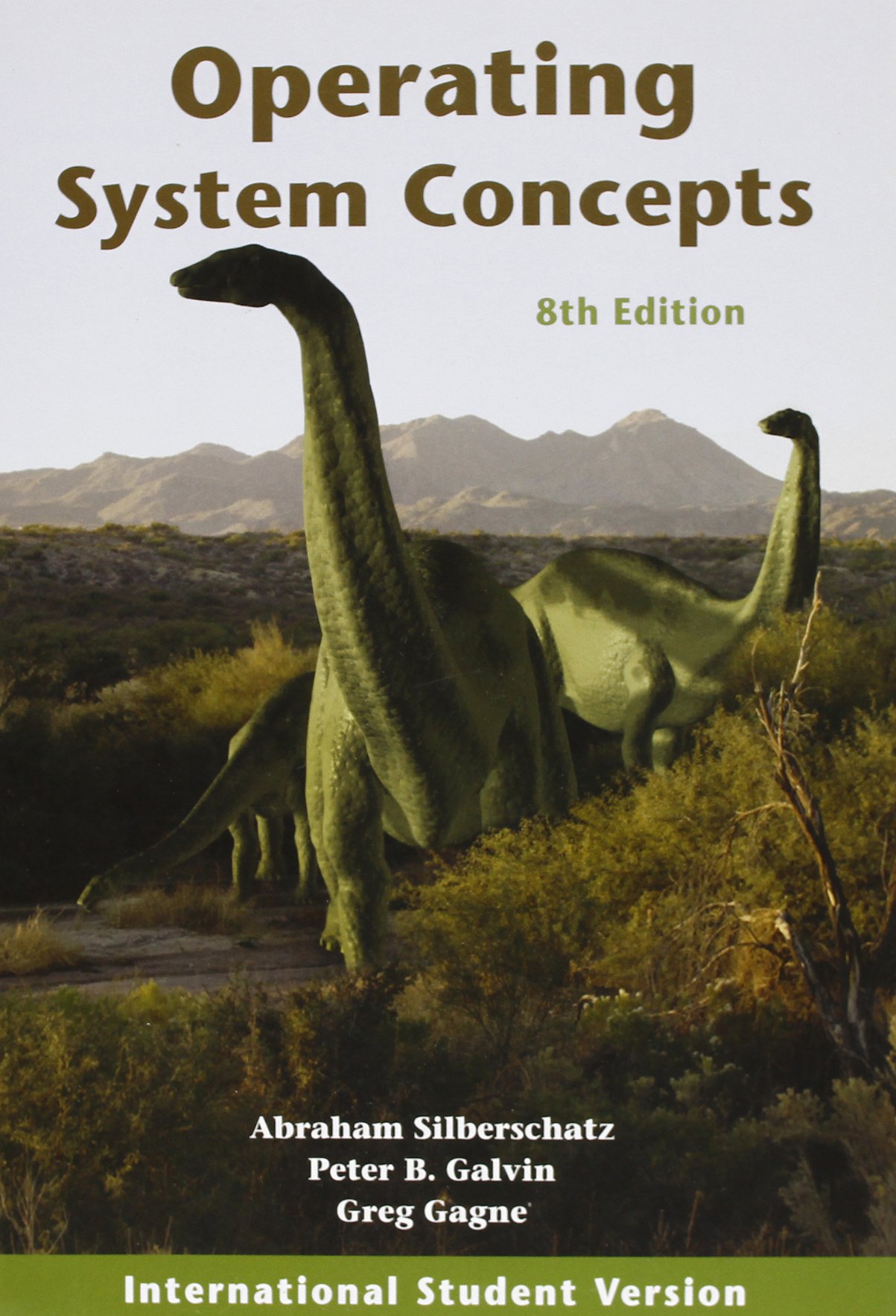Modern Operating Systems By Tanenbaum
This article reviews the book “Modern Operating Systems” by Andrew S. Tanenbaum and Herbert Bos.
The article covers-
- Special features of book
- Analysis of Content
- Analysis of Exercises
- Necessary Instructions
- Conclusion
Why Should Be Read?
Special Features of Book-
The special features of this book are-
- It strikes a good balance between the theory and problems.
- The topics are explained in sufficient details which makes it pretty good.
- The clear and concise diagrams and tables make it interesting to read the book.
- The book is suitable for beginners as well as intermediate students.
- The language used while explaining the topics is simple and straight forward.
- The topic of Memory Management is covered in an elaborative and clear way.
- Of all the textbooks present on this subject, this book has the best exercise questions.
- The questions are of good quality and sufficient for GATE preparation.
Analysis of Content-
The following table analyzes sections of the book that are relevant for GATE-
| Chapter No. | GATE Relevant Sections | GATE Topics Covered |
| 1 | 1.1 to 1.3 | Introduction to Operating Systems
(Optional to Read) |
| 1.5 | ||
| 1.6 | ||
| 2 | 2.1 | Process Management |
| 2.2 | Threads | |
| 2.3 | Inter-Process Communication | |
| 2.4 | Process Scheduling
(First Come First Serve, Round Robin etc) |
|
| 2.5 | Classical Inter-Process Communication Problems
(Producer-Consumer, Dining Philosophers etc) |
|
| 3 | 3.1 | Memory Abstraction |
| 3.2 | ||
| 3.3 | Virtual Memory | |
| 3.4 | Page Replacement Algorithms
(FIFO, LRU, Optimal etc) |
|
| 3.5 | Paging Design and Implementation Issues | |
| 3.6 | ||
| 3.7 | Segmentation | |
| 4 | 4.3 to 4.5.2 | File Management System |
| 5 | 5.1 to 5.3 | Input Output
(Overlaps with Computer Organization Syllabus) |
| 5.4.1 to 5.4.4 | Disk Scheduling Algorithms | |
| 6 | All Sections | Deadlock |
Covering Only These Sections Is Enough
Analysis of Exercises-
The following table analyzes exercises of the book that are relevant for GATE-
| Chapter No. | Question No. |
| 1 | 4, 5, 10, 11, 13, 14,15, 24 |
| 2 | 5, 6, 7, 8, 16, 17, 23, 24, 25, 26, 27, 30, 32, 33, 39, 40, 41, 42, 43, 44, 45, 46, 49, 51, 54, 55 |
| 3 | 2, 4, 6, 7, 11, 12, 13, 14, 15, 16, 17, 19, 20, 22, 24, 25, 27, 28, 33, 35, 36, 38, 42, 44, 45, 47 |
| 4 | 12, 13, 16, 18, 23, 24, 25, 32, 36, 37, 38, 40 |
| 5 | 5, 6, 8, 11, 12, 17, 18, 19, 20, 21, 28, 31, 32, 37 |
| 6 | 5, 8, 14, 20, 22, 23, 25, 26, 28, 34 |
Practicing Only These Exercises Is Enough
Necessary Instructions-
Keep the following instructions in mind while reading the book-
- The book has nearly 1100 pages.
- If you concentrate on just GATE syllabus, the number of pages reduce significantly.
- The topics of process management and memory management are the focused areas in GATE exam.
- Keep making quality notes while reading the book. This will help you to solve theoretical questions.
- GATE focuses on numerical questions from this subject. So, practice all the above questions.
- Try to implement the process scheduling algorithms and inter-process communication problems.
Conclusion-
- The text book covers the entire GATE syllabus and much more than that.
- The best part of the book is its exercise questions and at par with the questions asked in GATE.
- The book covers tricky topics like inter-process communication in an elaborative and fun to read way.
- The book is sufficient for theoretical as well as numerical questions.
| THIS BOOK IS SELF-SUFFICIENT FOR GATE EXAM. |
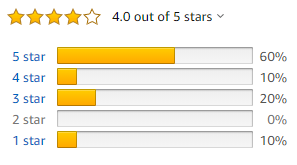
Amazon Rating
Student’s Reviews-
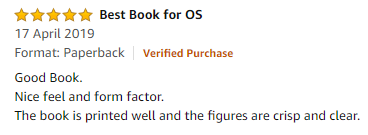
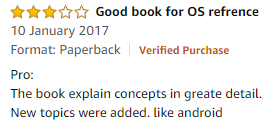




Other Recommended Books-
Operating Systems By William Stallings-
Operating System Concepts By Abraham Silberschatz-
